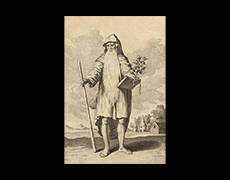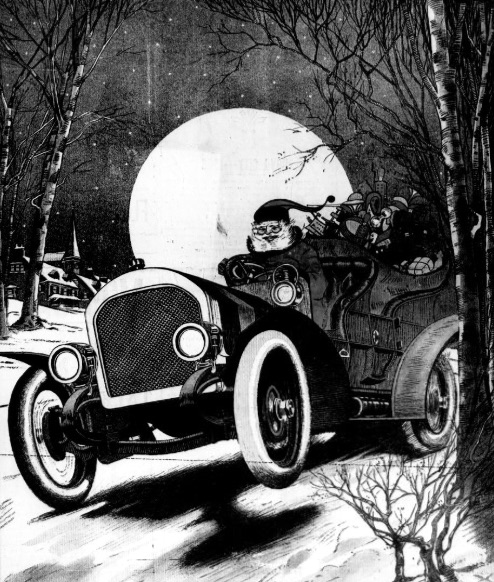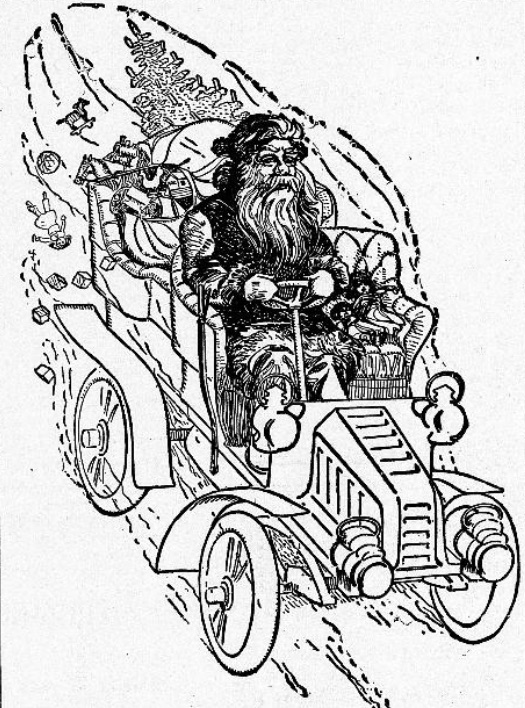
The rich historical customs we follow during the Christmas, Yule, and Winter Solstice season grew out of our ancient past. As humans evolved, so did their customs, traditions, and stories.
The following piece is from America’s Borrowed Christmas Customs, 1929, and takes a light look at some of the ancient Pagan origins of the Christmas traditions.
Pagan Christmas Origins
At this time the prince of the Druids took his golden sickle and cut the mistletoe from the oaks.
In the northern countries great logs were burned to the glory of Odin and Thor.
The Goths and Saxons called their midwinter feast “Yule” and to this day many people in “bonny Scotland” still say Yuletide instead of Christmas.
The ancient Germans celebrated the sun’s ascent by decorating a large tree of the forest with bright berries or anything bright and shining.

At the same season of the year the Greeks held their Winter festival, “the presence of the gods,” which was called Epiphany. These rites were held in the dead of night.
The Druids used to arouse the men from sleep on cold Winter nights with loud music. This music “waketh” them so they would leave their warm beds and perform the spectral ceremonies of the season.
This music, or “waketh,” has since become known as “waits” through the simple slurring of the word by past generations.
From the “waits” evolved the Christmas carols.
The “twelfth night” was the grand climax of a 12-day celebration held by the Danes in thanksgiving for the promise of another Spring.
This was a season of riotous games and merriment and it lasted through 6 days of the old year and 6 days of the new.

The Romans decorated their dwellings with evergreens. These branches were plucked from the trees through kindness and brought into the warm house to protect them from the cold.
The Pagan custom of celebrating the Winter Solstice was at its height when the church recognized Christmas as a feast day, about 400 AD.
It is easy, then, to see how Christmas festivities became interwoven with Pagan customs.
Source: Evening star. (Washington, D.C.), 22 Dec. 1929.

